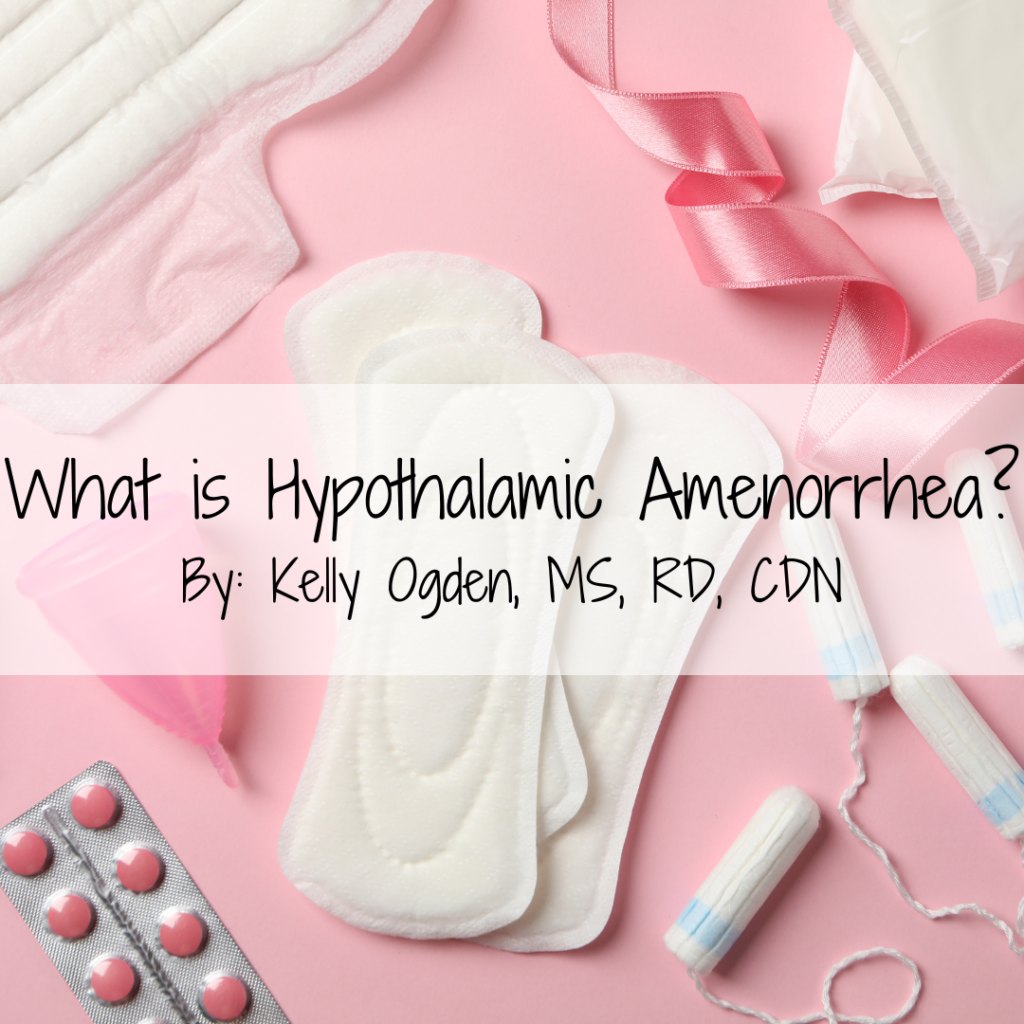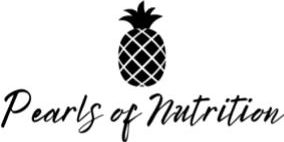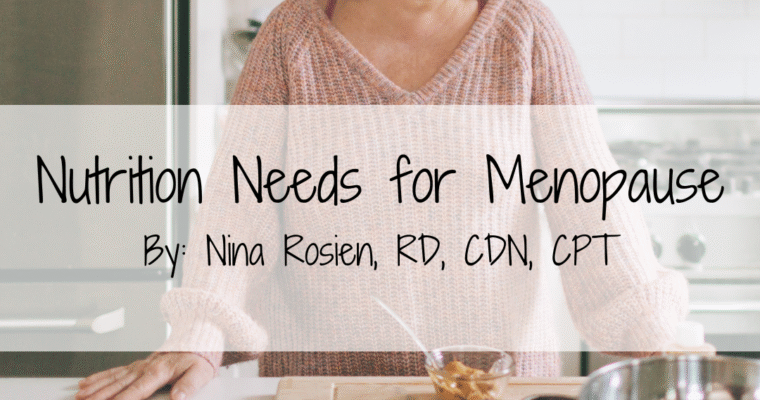
There are many consequences of restricted eating and yo-yo dieting especially on the female reproductive system. If you have ever missed or lost your period then you may have amenorrhea. Amenorrhea is the absence of menstruation, defined as missing one or more menstrual periods, in women of childbearing age. Amenorrhea is divided into two subtypes:
- Primary amenorrhea occurs when you have never gotten a natural period without intervention from birth control pills or hormone replacement by the age of 16.
- Secondary amenorrhea is when an individual has had a natural period in the past and then misses a cycle for at least 3 consecutive months.
Young teenage athletes are more susceptible to primary amenorrhea due to starting training young and being involved in many sports. Secondary amenorrhea can be masked by a birth control pill and give a false sense of period.
Amenorrhea in individuals with eating disorders or those who restrict their intake is related to loss of body weight and hormonal changes that accompany weight loss vs a primary problem with the ovaries or uterus. This type of amenorrhea is referred to as hypothalamic amenorrhea. Hypothalamic amenorrhea is related to a combination of factors including negative energy balance, over exercise and high or consistent stress. Hypothalamic amenorrhea (HA) is one of the most common causes of secondary amenorrhea. This leads to dysfunction of the hypothalamus which is a small area in your brain and generally referred to as the control center of the brain. The hypothalamus receives input from all over the body in the form of hormones and chemical messangers, then responds by making hormones that affect other organs such as those involved in reproduction. When working properly, the hypothalamus releases a hormone called gonadotropin-releasing hormone (GnRH) that regulates menstrual cycle hormones. However, in hypothalamic amenorrhea, GnRH becomes dysregulated, contributing to reduced estradiol production from the ovaries. Without adequate estradiol, the lining of the uterus does not proliferate and therefore no shedding occurs aka no menstruation.
Several components may go into HA including energy balance, food restrictions, weight loss, stress, over exercising and genetics. The combination of and degree of each factor differs from every individual and can happen at any body size. Genetics do play a role which can explain why in two individuals who have similar habits and present comparably, one may lose their period and the other doesn’t. For energy balance it is important to consider patterns of food amount, food groups, and distribution throughout the day. A decrease in as little as 25% in energy intake relative to our body’s requirements can impair hormone production and signaling. “Clean eating”, cutting carbohydrates, and incorporating fat free foods are all risk factors to suppress the hypothalamus and then in turn, the reproductive system. Assessing exercise habits for intensity, duration, days per week, and rest days, can be enlightening. Is an individual exercising first thing in the morning without having breakfast or a snack? Understanding one’s weight history is also important as even a loss of 10 pounds may put individuals at risk of losing their periods. Checking in with stress levels including acute acute and chronic stress. What are their day to day stress levels are and any do lifestyle choices such as food control and exercise impact stress?
Hypothalamic amenorrhea has many negative health consequences when left untreated including; premature osteoporosis/osteopenia, stress on the brain and heart and reproductive health complications which may lead to infertility. Hormonal imbalances can result in decreased body density. Decreased bone mineral density can lead to chronic pain, loss of height and increased risk of fractures. Since bone accrual is an ongoing process that peaks during adolescence, reduced bone mineral density is more common in those who develop an eating disorder at a younger age and may be an irreversible complication of anorexia nervosa. With weight loss the body also loses muscle mass and organ mass which the body needs calories to then repair and build these things up again.
Beyond reproductive and bone health, hypothalamic amenorrhea can have implications on overall wellbeing. Hormonal imbalances can affect mood, energy levels and cognitive functioning all of which may lead to symptoms such as fatigue, depression and difficulty concentration.
The below graph is from the book, No Period, Now What? by Dr. Nicola J. Sykes and represents the percentage of survey respondents (276 participants) who ‘always’ or ‘often’ experienced each listed symptom while having HA (light gray) and after working towards recovery (dark gray).

As you can see, HA can lead to an extensive list of physical, mental, and emotional discomforts.
Treatment
There is no clear treatment or preventative measure for hypothalamic amenorrhea, other than weight restoration and adequate nutrition. Our bodies need calories to survive and function in a healthy way. There is variability in the literature regarding the degree of weight restoration needed for resumption of menses, with some sources citing return at greater than 90% of ideal body weight, and others seeing a stronger correlation with the weight at which cessation of menses was observed. Time to recovery does not seem to be correlated with how long the period was missing. That said, everyone is unique and some may see a return to menses despite being below ideal body weight whereas others may need to rise above the weight they were at when the cessation of menses occurred. It’s important to remember that if menstruation has not been restored, it is likely further adjustments to nutrition, exercise, and stress management are needed.
Supporting changes may include:
- Restricting or reducing high intensity exercise. If that feels challenging, gradual changes can still be beneficial. An individual going from 2 hours per day to 1 hour per day or if movement is happening 7 days per week, go down to 5 days per week. It may be recommended to wait 3 cycles for hormones to rebalance and then start incorporating movement again while monitoring your cycle.
- If you are an athlete and cannot take time off from sport then fueling more and resting as much as possible in the off seasons. Reducing training volume or intensity and not exercising outside of your scheduled practices may also help.
- Increasing calorie intake for planned exercise. Have a goal to eat before AND after training. And don’t forget about caloric energy in the form of sports drinks, gels, gummies, or snacks during training.
- Eating all food groups while focusing on calorie-dense foods and not limiting food choices.
- Consistent timing with eating. Learn to follow hunger cues again and work towards intuitive eating. If you are working with a registered dietitian, a food journal may be beneficial to help discuss where there are opportunities to increase or adjust nutrition.
- Reduce stress as much as possible and learn new coping mechanisms such as meditation, gardening, mindful walks, joining a book club.
It is not advised to use hormonal contraceptives for the sole purpose of inducing a withdrawal bleed. The induction of withdrawal bleeding can give a false sense of wellness which could decrease motivation for nutritional rehabilitation and weight restoration. However, it is recommended to always work with your primary care physician or OB to come up with an individualized plan that best supports your needs. Receiving this diagnosis may feel scary however there are factors in your control to work towards regaining your menstrual cycle!
References:
https://www.acute.org/blog/amenorrhea-absence-menstruation-eating-disorder-patients
Sykes, N.J.(2016) No period, Now What? A Guide to Regaining Your Cycles and Improving Your Fertility


